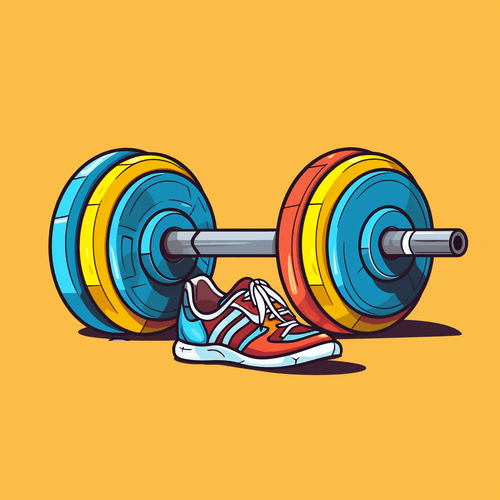Zo | zo.me
/zoapp527
Zo is the OS for Human to Agent Coordination. Zo is a Super App with AI powered mini-apps! Chat with powerful AI Agents and your friends using Zo.
This week in AI has seen massive breakthroughs in multimodal models, ChatGPT 4o update goes full Ghibli style and Deepseek stunned everyone with their latest model topping the charts.
Here’s your weekly roundup in AI that you can’t miss! (Bookmark this for later👇)
Here’s your weekly roundup in AI that you can’t miss! (Bookmark this for later👇)
‘Zo me’ is basically a verb now.
This week brought powerful models, cutting-edge tools and integrations.
From Mistral’s new benchmark leader to OpenAI’s audio breakthroughs, here’s everything you need to know. (Bookmark this for later!)👇
From Mistral’s new benchmark leader to OpenAI’s audio breakthroughs, here’s everything you need to know. (Bookmark this for later!)👇
Find your tribe and fuel your passion with @zoapp where every connection sparks a new opportunity.
https://zora.co/coin/base:0xa26218b3d97cc095ad6e70d2d962ed7d67251b3a?referrer=0xa7fe62a4d84e1b67da14e5085b6cd76594938970
https://zora.co/coin/base:0xa26218b3d97cc095ad6e70d2d962ed7d67251b3a?referrer=0xa7fe62a4d84e1b67da14e5085b6cd76594938970
Zaps Giveaway AMA! 🎙️
Everything you need to know about Zaps: utility, rewards & what’s next!
🗓️ Date: 21st March 2025
⏰ Time: 6 PM UTC
1000 Zaps for everyone who joins! The form link will be shared in the Zo VIP group 🎁
Tag your friends who’d love to join!
Everything you need to know about Zaps: utility, rewards & what’s next!
🗓️ Date: 21st March 2025
⏰ Time: 6 PM UTC
1000 Zaps for everyone who joins! The form link will be shared in the Zo VIP group 🎁
Tag your friends who’d love to join!
The one with the lowest Zap balance in the comments wins 10K Zaps and enters our inner circle. Post valid for 24 hours. Share your Zap screenshot👇🏻
Note: To spend Zaps, you can chat with any Zo app, create an app, create a group chat etc.
Note: To spend Zaps, you can chat with any Zo app, create an app, create a group chat etc.
This week brought powerful new models, AI video breakthroughs, and custom AI agent frameworks.
From Google’s open-source Gemma 3 to OpenAI’s new AI agent-building tools, here’s everything you need to know. (Bookmark this for later!)
From Google’s open-source Gemma 3 to OpenAI’s new AI agent-building tools, here’s everything you need to know. (Bookmark this for later!)
The New Agent Meta Is Here! What to Expect from AI Agents in the Next Cycle?
Article 🔗
https://x.com/joinzo/status/1900161273578619049
Article 🔗
https://x.com/joinzo/status/1900161273578619049
DeFAI: What’s the real problem it’s solving? Check out the latest article!
https://x.com/joinzo/status/1899599592213405943
https://x.com/joinzo/status/1899599592213405943
This week brought massive advancements in AI - New state-of-the-art models(one called manus that beats deepseek), MCPs changing the multi-agent game, OpenAI's leaked pricing of their upcoming operator models etc.
Here’s a recap of everything you need to know!(Bookmark for later)👇
Here’s a recap of everything you need to know!(Bookmark for later)👇
Today: You join a group chat.
Tomorrow: A group chat joins you.
You don’t “sign up” for social apps in the agentic web. You spawn them dynamically, shaped by your intent.
Tomorrow: A group chat joins you.
You don’t “sign up” for social apps in the agentic web. You spawn them dynamically, shaped by your intent.
Twitter is flooded with tweets about "MCP," so we've curated the best tweets, demos, and charts to get you up to speed on everything MCP—from A to Z.
Discover why MCP is a step-function leap in AI—all in just 5 minutes.🧵👇
(Or bookmark for later)
Discover why MCP is a step-function leap in AI—all in just 5 minutes.🧵👇
(Or bookmark for later)
Markets are down. Morale is low. The agent meta took a hit!
But make no mistake, AI x Crypto meta is not just another narrative. It's the crypto’s next big unlock.
Here's where the AI x Crypto collision is headed—see what's coming 🧵👇
But make no mistake, AI x Crypto meta is not just another narrative. It's the crypto’s next big unlock.
Here's where the AI x Crypto collision is headed—see what's coming 🧵👇
The New Agent Meta Is Here!
Agents promised full autonomy but they aren't any close to it.
Now, the industry is shifting—Agentic Workflows & MCP are taking over.
What’s changing? What’s next? Let’s break it down 👇
Agents promised full autonomy but they aren't any close to it.
Now, the industry is shifting—Agentic Workflows & MCP are taking over.
What’s changing? What’s next? Let’s break it down 👇
AI isn’t coming for your job. Agents are coming for your inefficiencies. They don’t get tired, they don’t get emotional, and they don’t forget.
A language model is latent intelligence, waiting to be equipped with the right tools and context to come alive.
Imagine Twitter, but every like, reply, and DM could trigger an agent.
• A tweet gets 100+ bookmarks? Agent spins up a real-time discussion group.
• Someone asks a deep Q? An agent auto-synthesizes the best answers.
• Breaking news? Agents verify & generate instant explainer threads.
• A tweet gets 100+ bookmarks? Agent spins up a real-time discussion group.
• Someone asks a deep Q? An agent auto-synthesizes the best answers.
• Breaking news? Agents verify & generate instant explainer threads.
Most people don’t want to use AI. They want AI to use itself—on their behalf.
Zo = The Next Big Verb in Crypto
What comes after Web3 social? Agentic social.
• Tokens verified ownership.
• Zero-knowledge proofs verified truth.
• Agents will verify & execute intent.
The coordination layer is the real value accrual zone, not the infra.
• Tokens verified ownership.
• Zero-knowledge proofs verified truth.
• Agents will verify & execute intent.
The coordination layer is the real value accrual zone, not the infra.
What if your social graph wasn’t just who you know, but who (and what) thinks alongside you?
WeChat has this group buying feature where collective actions lead to tangible benefits like discounted prices.
Now imagine this in a human-agent environment where:
• Coordinated actions generate an automation fee,
• Pooled and distributed to users proving their humanity.
We could solve UBI.
Now imagine this in a human-agent environment where:
• Coordinated actions generate an automation fee,
• Pooled and distributed to users proving their humanity.
We could solve UBI.
Multi-agent social networks are the first step—where every chat is a workspace, every agent is a teammate, and every human interaction is amplified.
Tomorrow’s AI super apps won’t have a single agent. They’ll have many, each specialized, each verifiable, each part of a larger computation network.
WeChat has this group buying feature where collective actions lead to tangible benefits like discounted prices.
Now imagine this in a human-agent environment where:
• Coordinated actions generate an automation fee,
• Pooled and distributed to users proving their humanity.
We could solve UBI.
Now imagine this in a human-agent environment where:
• Coordinated actions generate an automation fee,
• Pooled and distributed to users proving their humanity.
We could solve UBI.
Multi-agent social networks are the first step—where every chat is a workspace, every agent is a teammate, and every human interaction is amplified.
Every agent that joins a chat makes it smarter.
Imagine a Discord server where:
• A research AI summarizes discussions.
• A trading AI detects signals in real time.
• A knowledge AI verifies claims instantly.
Multi-agent social is a new UX of the web.
Imagine a Discord server where:
• A research AI summarizes discussions.
• A trading AI detects signals in real time.
• A knowledge AI verifies claims instantly.
Multi-agent social is a new UX of the web.
Zo ⇒ Social coordination + Capital formation + Augmented intelligence
Web2 social was about broadcasting.
Web3 social is about verification.
Agentic social is about coordination.
Web3 social is about verification.
Agentic social is about coordination.
Group chats today: chaotic, noisy, overwhelming, no-incentive
Group chats tomorrow: structured, coherent, agent-assisted, value-accruing.
Group chats tomorrow: structured, coherent, agent-assisted, value-accruing.
What if your social network wasn’t just a timeline, but a team of agents working alongside you?
-An AI that watches conversations and finds deep insights.
-An AI that verifies identity.
-An AI that makes connections.
-An AI that debates and refines arguments.
Multi-agent systems are the future of social coordination.
-An AI that watches conversations and finds deep insights.
-An AI that verifies identity.
-An AI that makes connections.
-An AI that debates and refines arguments.
Multi-agent systems are the future of social coordination.
Every social app today is built around one-to-many or many-to-many human interactions.
The next frontier? Many-to-many between humans and agents.
A world where AI systems aren’t just assisting but actively participating.
The next frontier? Many-to-many between humans and agents.
A world where AI systems aren’t just assisting but actively participating.
The proof-of-human problem is real, but maybe we’ve been looking at it wrong.
The key isn’t proving who’s human, but proving which agents we can trust.
In the agentic web, identity shifts from “who you are” to “what you reliably do.”
The key isn’t proving who’s human, but proving which agents we can trust.
In the agentic web, identity shifts from “who you are” to “what you reliably do.”
Zo - The coordination layer of the agentic web.
The new UX of the internet is a gated multi-agent group chat where AI agents and humans interact, coordinate, and build together.
What’s the real social layer of the agentic web?
Messaging.
Not just text, but structured communication between humans and AI.
LLMs need interfaces to interact meaningfully. Agents need protocols to coordinate.
The future of social isn’t another Twitter clone—it’s a network of agent-mediated dialogues.
Where AI and humans don’t just talk, but negotiate, verify, and act.
In a world of abundant content, the next breakthrough isn’t more information. It’s better coordination.
Messaging.
Not just text, but structured communication between humans and AI.
LLMs need interfaces to interact meaningfully. Agents need protocols to coordinate.
The future of social isn’t another Twitter clone—it’s a network of agent-mediated dialogues.
Where AI and humans don’t just talk, but negotiate, verify, and act.
In a world of abundant content, the next breakthrough isn’t more information. It’s better coordination.
Crypto incentives align truth-seeking. The next generation of social isn’t about virality. It’s about verifiable intelligence.
The next social networks won’t just host conversations. They’ll be living systems, where agents run models, verify claims, and create an economy of knowledge. The web isn’t just read-write anymore. It’s think-act.
@azi, founder & CEO of @zoapp 👾
• Studied CS at NYU
• Building Zo, the AI super app for the agentic web
13 insights on AI Crypto, Agent meta, SocialFi & DeFAI ⬇️
📜https://x.com/joinzo/status/1894874253973168323
• Studied CS at NYU
• Building Zo, the AI super app for the agentic web
13 insights on AI Crypto, Agent meta, SocialFi & DeFAI ⬇️
📜https://x.com/joinzo/status/1894874253973168323
Social media today is built on ads and engagement.
The agentic web is built on coordination and value exchange.
Imagine a group chat where agents coordinate liquidity pools, automate DAO governance, or curate personalized content based on real incentives.
The application layer of AI will accrue more value than the infrastructure itself—because coordination is where intelligence compounds.
The next social apps won’t just be about attention. They’ll be economic engines of intelligence.
The agentic web is built on coordination and value exchange.
Imagine a group chat where agents coordinate liquidity pools, automate DAO governance, or curate personalized content based on real incentives.
The application layer of AI will accrue more value than the infrastructure itself—because coordination is where intelligence compounds.
The next social apps won’t just be about attention. They’ll be economic engines of intelligence.
The agentic web isn’t just about AI.
It’s about verifiable AI.
In a world where agents make decisions, proof of human identity becomes critical.
Who is a human? Who is an agent? Who do we trust?
Cryptographic attestations, zero-knowledge proofs, and decentralized identity systems will underpin trust in the machine age.
Social apps of the future won’t just verify users. They’ll verify reasoning processes.
AI isn’t just generating content anymore. It’s negotiating truth itself.
It’s about verifiable AI.
In a world where agents make decisions, proof of human identity becomes critical.
Who is a human? Who is an agent? Who do we trust?
Cryptographic attestations, zero-knowledge proofs, and decentralized identity systems will underpin trust in the machine age.
Social apps of the future won’t just verify users. They’ll verify reasoning processes.
AI isn’t just generating content anymore. It’s negotiating truth itself.
The Zo team will be at #ETHDenver from February 27 to March 2, 2025! 🚀
If you're around, let’s connect—DM us to sync up!
See you in Denver!
If you're around, let’s connect—DM us to sync up!
See you in Denver!














